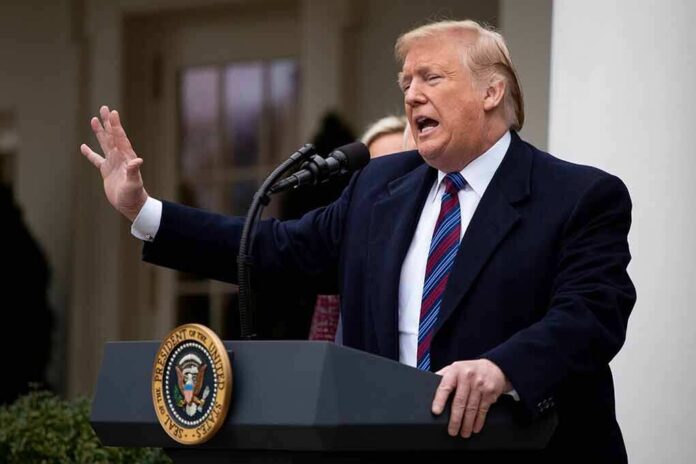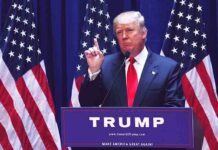
The recent firing of two Democratic Federal Trade Commission commissioners by President Trump raises questions about the balance of power between the presidency and independent regulatory agencies.
Quick Takes
- President Trump dismissed FTC commissioners Alvaro Bedoya and Rebecca Kelly Slaughter, alleging unconstitutional overreach.
- The departing commissioners argue their removal violates legal protections for agency independence.
- The legal confrontation could redefine executive authority over independent regulatory bodies.
- Potential implications for the selection and autonomy of future regulatory agency members.
Unprecedented Dismissals Challenge Agency Independence
President Donald Trump has terminated Alvaro Bedoya and Rebecca Kelly Slaughter from the FTC, igniting a debate on the extent of executive authority over independent agencies. Both Democratic commissioners intend to sue for their reinstatement, claiming their removal contradicts established legal norms meant to safeguard the FTC’s autonomy. This situation calls into question longstanding principles limiting presidential influence over such agencies.
The removal leaves the FTC with only two remaining Republican commissioners and a pending third nomination, altering the agency’s partisan balance. Critics argue the move undermines its capacity to operate free from executive control, thus challenging its core mission to enforce consumer protection and antitrust laws impartially.
Pres Trump sets up what will be a seminal Supreme Court case by dismissing two Democratic FTC Commissioners leaving just two Republicans. This is in clear contravention to a "1935 Supreme Court case known as Humphrey’s Executor v. United States, [which] upheld job protections… pic.twitter.com/o3U93dpiB6
— Neil Sethi (@neilksethi) March 19, 2025
Legal Confrontation over Presidential Powers
The firings might lead to substantial legal disputes with broader implications for presidential authority across independent regulatory bodies. Bedoya and Slaughter argue that historical Supreme Court rulings protect the FTC’s independence, specifying removal for cause only. They believe the dismissals could pave the way for presidential appointments aligned tightly with the President’s agenda.
The outcome of this legal confrontation could influence the operational frameworks of agencies like the Federal Reserve, raising concerns about maintaining political sovereignty over economic-based policymaking.
Potential for Setting Legal Precedents
Observers note that Trump’s action challenges a historical legal precedent established in the 1935 Supreme Court decision (Humphrey’s Executor v. United States), which limits the President’s capacity to discharge FTC commissioners without cause. The development could set a legal benchmark that influences future leadership choices in independent agencies.
Critics, including political advocates and previous commissioners, argue this scenario can disrupt the agency’s ability to impartially enforce laws, tilting benefits towards corporate entities. This contentious decision has the potential to backfire on future Republican administrations if echoed by future Democratic leadership.
Sources:
- Trump fires 2 Democrats on the Federal Trade Commission, seeking more control over regulators | AP News
- White House pledges to defend FTC firings in court
- Trump fires both Democratic FTC commissioners, setting stage for legal brawl












